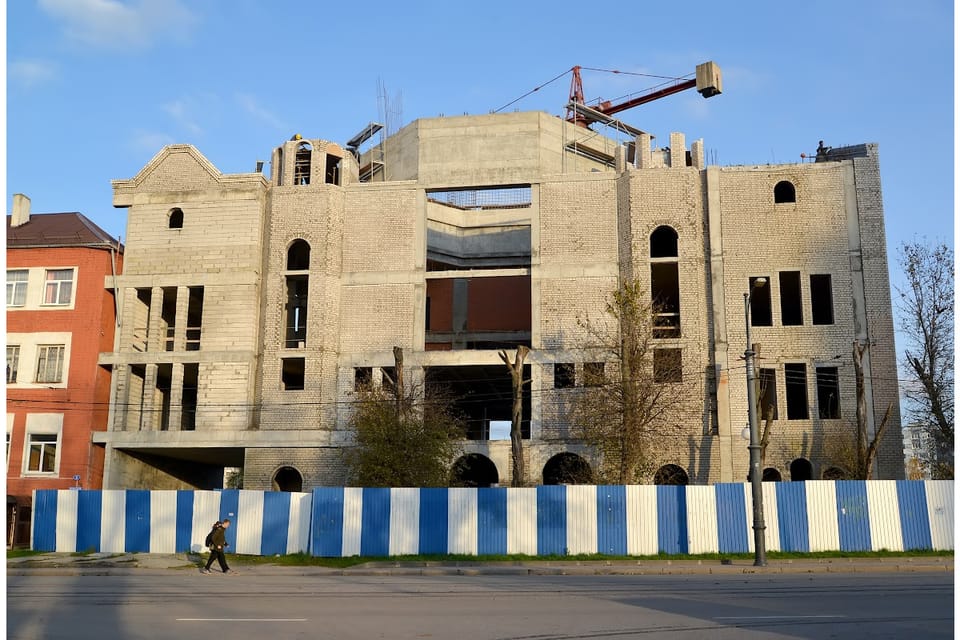Are We Allowed to Actively Build a Torah Society Before Moshiach — or Must We Wait Passively?

This is a vital question, especially in today’s world where Jews are seeking direction: Do we wait quietly for Moshiach to come, or are we allowed—even obligated—to actively build a Torah-based society before he arrives?
The answer is deeply rooted in Torah sources and clarified by Gedolei Yisrael across the generations.
The Short Answer
Yes — we are not only allowed, but required, to do everything within our power to live according to Torah, build Torah institutions, and establish communities that reflect the ideals of the Torah, even before Moshiach comes.
However, this must be done within the framework of Torah, with full recognition that only Hashem can bring the final redemption — not through human nationalism or rebellion against Torah authority.
1. Torah Obligation to Build Torah Life — In Every Generation
The Rambam writes clearly:
חובת כל איש ואיש מישראל – לבנות לו בית, ולנטוע אילנות, ולעשות פרקמטיא – ועם זה לקבוע עיתים לתורה ולחנך בניו לתורה ויראה.
“Every Jew is obligated to build a home, plant trees, conduct business — and at the same time establish fixed times for Torah learning and educate his children in Torah and fear of Heaven.”
— Hilchos Deios 5:11
This applies in every generation, in every place — not just in the times of Moshiach.
The mitzvah to build batei knessios, establish yeshivos, support talmidei chachamim, and live in Torah-true communities has always been incumbent on us. From Bavel to Morocco, from Vilna to Teveria, Jews built Torah societies even under foreign rule and persecution.
2. We Are Not Passive — But We Don’t Force Redemption
The Gemara in Kesubos 111a teaches the famous Three Oaths:
השביע הקב"ה את ישראל שלא יעלו בחומה, ושלא ימרדו באומות, ושלא ידחוקו את הקץ.
“Hashem made Israel swear not to go up as a wall [forceful mass return], not to rebel against the nations, and not to force the end.”
These oaths are not about passivity. They prohibit political rebellion, armed uprisings, or human attempts to “bring Moshiach” through state-building. But they do not forbid us from building Torah communities, strengthening mitzvah observance, or drawing Jews closer to Hashem.
As the Satmar Rebbe, Rav Yoel Teitelbaum zt”l, wrote:
מעולם לא נאסר עלינו לבנות בתי מדרש וישיבות, לקבוע תורה בערים וכפרים – רק המרידה בבניין מדינה הוא האסור.
“We were never forbidden from building batei midrash, yeshivos, or establishing Torah in cities and villages — only the rebellion of establishing a state is prohibited.”
— Vayoel Moshe, Maamar Shalosh Shevuos [1]
3. Building Torah Societies Prepares the World for Moshiach
The Chazon Ish zt”l saw the rebuilding of Torah after the Holocaust as a fulfillment of Klal Yisrael’s role in preparing for the Geulah:
עבודה גדולה מוטלת עלינו: להקים עמודי תורה בכל מקום — זהו תיקון הדור, וזהו קירוב הגאולה.
“A great task is upon us: to raise pillars of Torah everywhere — this is the rectification of the generation, and this is the bringing near of the redemption.”
— Igros Chazon Ish, Vol. 1, Letter 3 [2]
Similarly, Rav Moshe Shmuel Shapiro zt”l wrote that every yeshiva, every shiur, and every act of chessed is part of the preparation for Moshiach. The difference between this and secular Zionist nationalism is that our actions are l’shem Shamayim, not l’shem medinah.
4. The Gra’s Students: Active Builders — Without Rebellion
One of the clearest historical proofs comes from the talmidim of the Vilna Gaon, who moved to Eretz Yisrael in the early 1800s to rebuild Torah life in Yerushalayim and Tzfas — decades before the Zionist movement.
They did not declare a state, raise flags, or speak of nationalism. But they did actively:
- Build shuls and yeshivos
- Purchase land
- Collect funds from abroad
- Restore Jewish life in Eretz Yisrael
- Await Moshiach with tears and prayer
This model — active, but humble — is what the Charedi world continues to emulate today.
5. What About Working for Jewish Unity, Justice, and Order?
While Charedim reject the secular State as a religious entity, they do not reject efforts to build communities of justice, peace, and order under Torah. Many Charedi-run municipalities in Israel today are examples of Torah society in action — without the arrogance of declaring it the redemption.
We build hospitals. We help the poor. We run Hatzalah and ZAKA. We vote when necessary. And we do all this without trying to “bring the Geulah” through political means.
Conclusion: Actively Building, Never Forcing
The Torah path is neither passivity nor rebellion.
We are active builders of Torah homes, Torah communities, Torah economies, and Torah lives — while waiting humbly for Hashem to send the Moshiach.
As the Rambam writes:
המצפה לביאת המשיח ולא יעסוק בתורה ומצוות — אינו אלא שוטה.
“One who waits for Moshiach but does not engage in Torah and mitzvos — is nothing but a fool.”
— Hilchos Melachim 12:2 [3]
Let us not be foolish.
Let us work to create Torah societies with humility, emunah, and love — so that when Moshiach comes, he will find a nation ready to welcome him home.
Sources
- Rav Yoel Teitelbaum, Vayoel Moshe, Maamar Shalosh Shevuos
- Chazon Ish, Igros, Vol. 1, Letter 3
- Rambam, Hilchos Melachim, Chapter 12, Halacha 2
